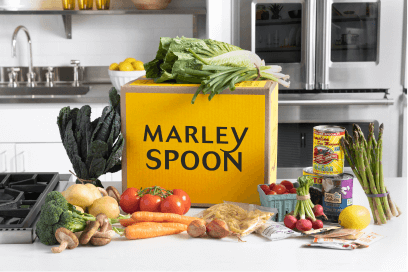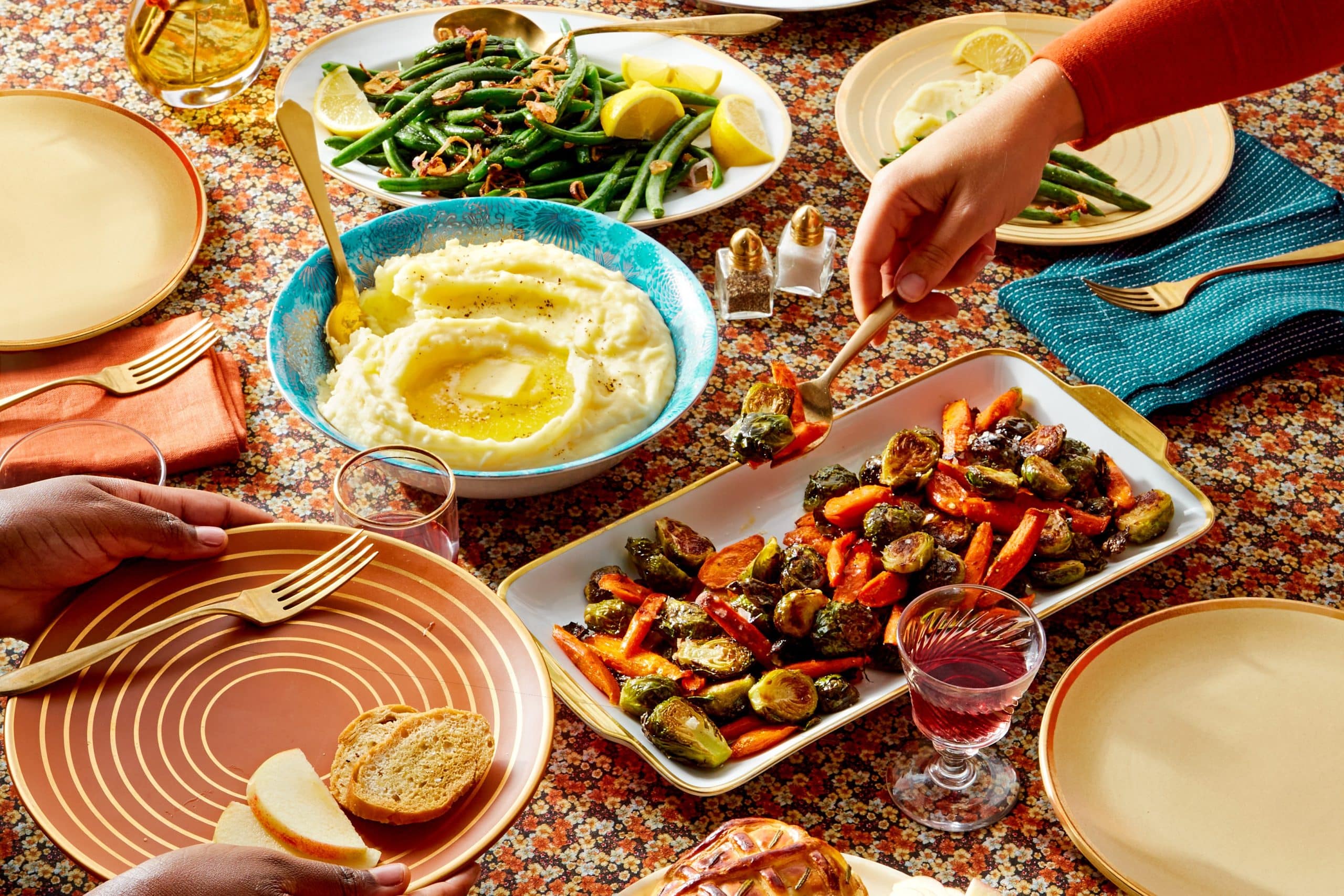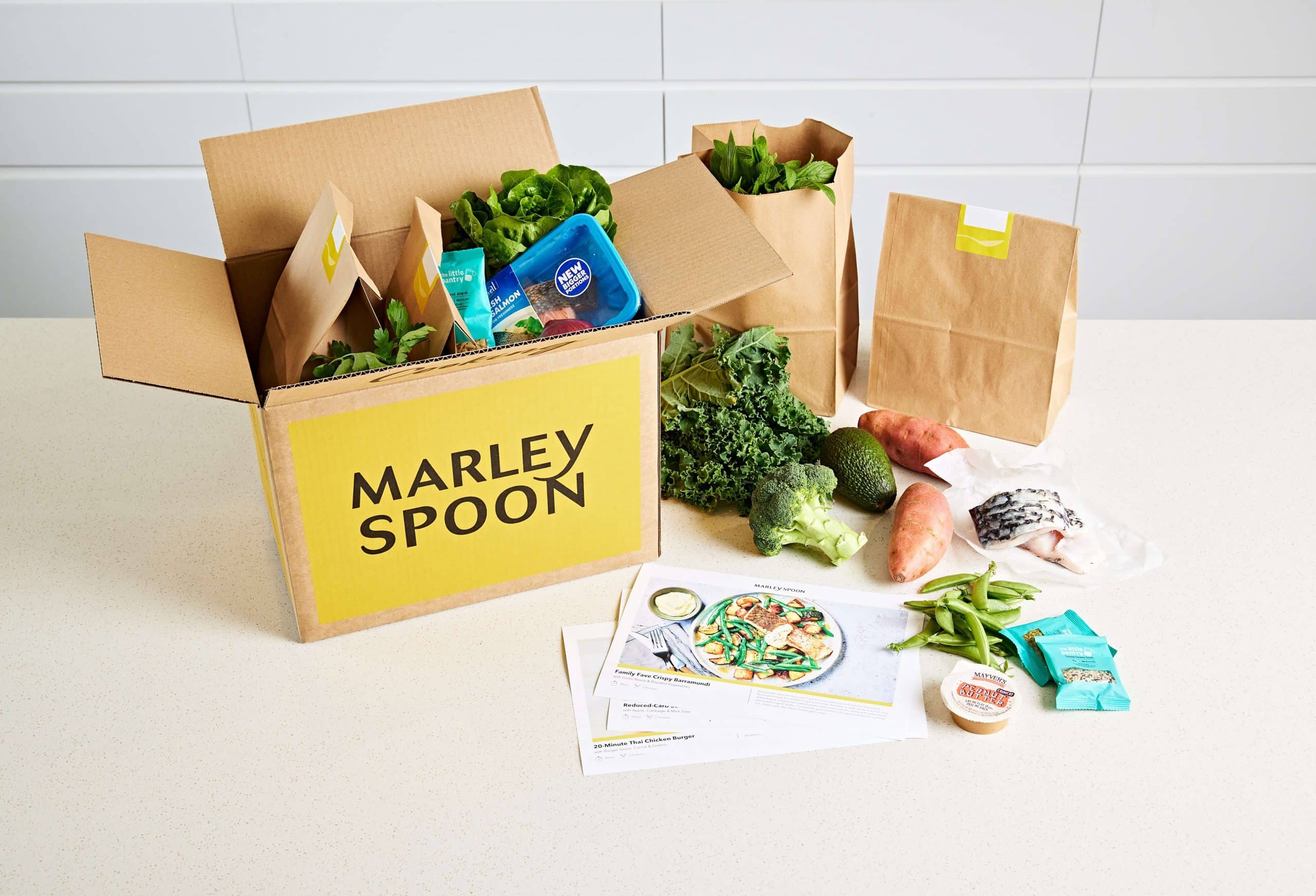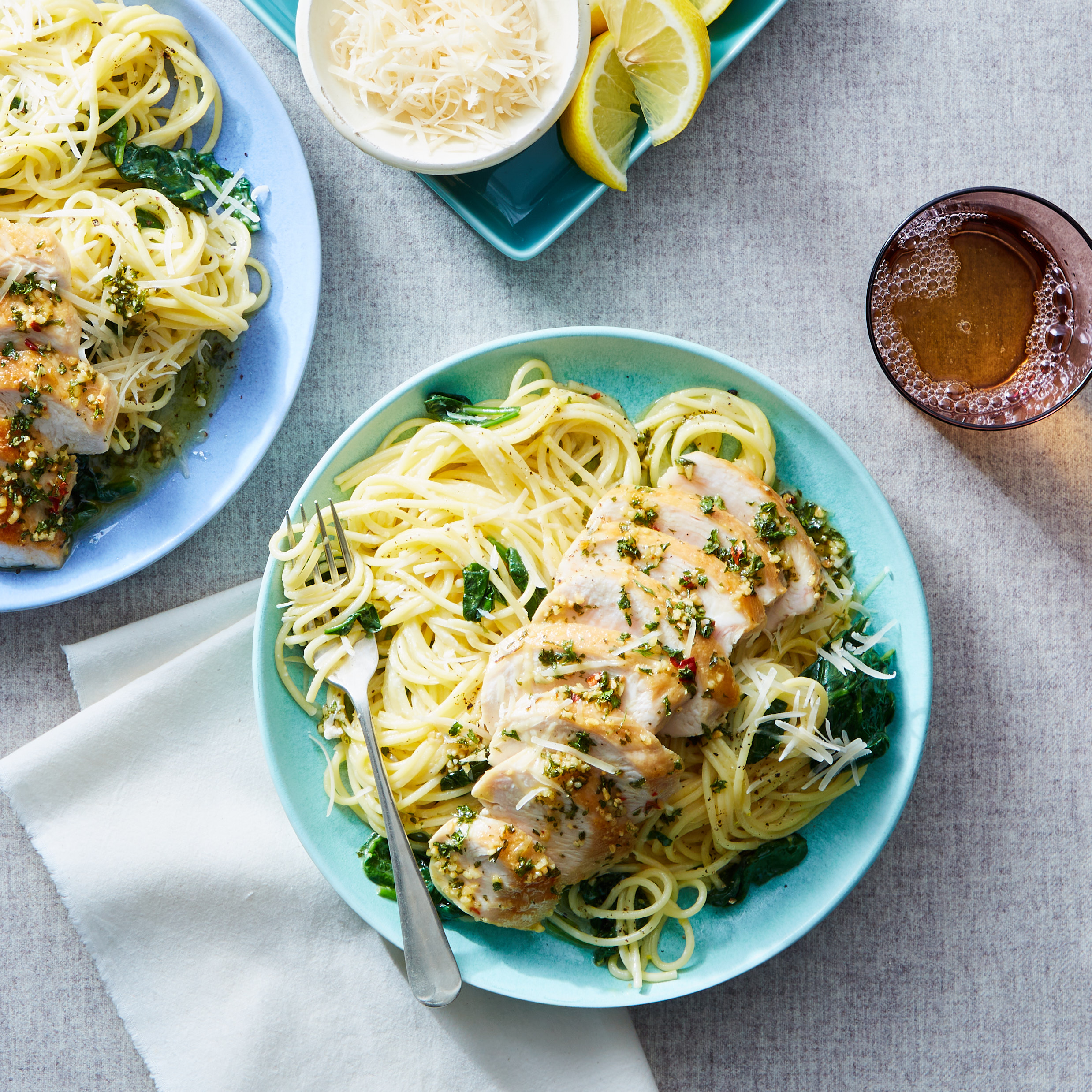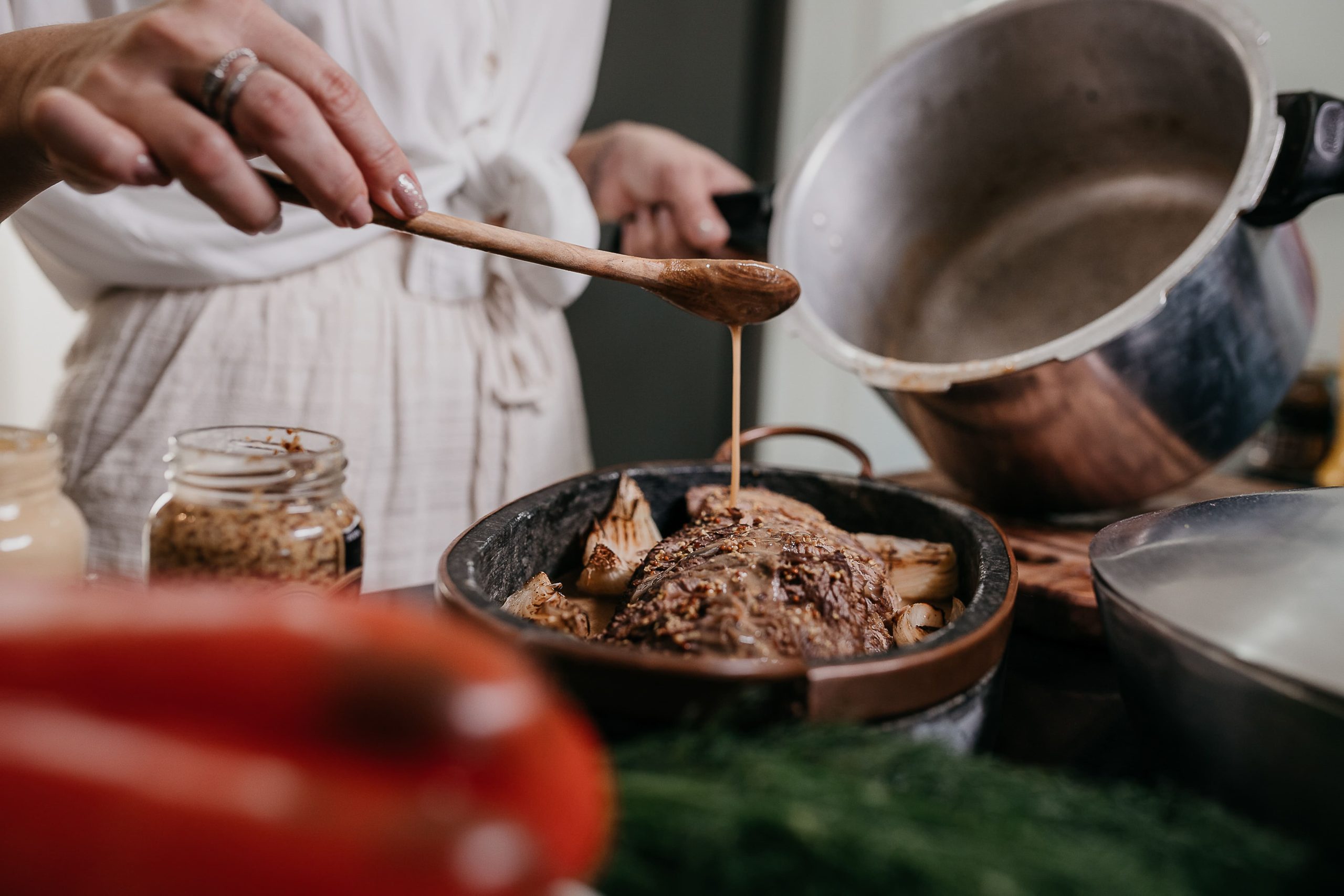We often note in our recipes to save a cup or so of pasta water before you drain your pasta. Some call this “starchy pasta water,” but we call this (unofficially): magical sauce water. On the surface, a pasta dinner appears so simple. Pasta + sauce = pasta and sauce! Right? Well, sure, but what if we said you could make a simple dinner even more delicious and special, with virtually no extra effort? This water that people so often (and tragically) pour down the drain is the best kept secret of the pasta world (a place we like to imagine exists, a place where houses are made of rigatoni, cars of wagon wheels and rotini, roads of lasagna noodles). Pasta water, because of the starch it contains, is the secret to making your sauce thicker and richer, and helps it adhere to the noodles better than you could have ever imagined.
The type of pasta you use, of course, can significantly affect the starchiness of the water—fresh pasta yields the highest starch levels, whereas artisanal dried pasta (what we use and send and love!) will create less, and everyday boxed grocery store pasta will create even less starch. You’ll know what type of pasta is going to make the water super starchy or less starchy by how it looks in the package: is it smooth and yellow, and maybe even glossy? Less starchy. Is it pale and kind of powdery looking? Starch city!
“In my days working in restaurants, we would keep that pasta water going all afternoon into the night, dipping and scooping pasta in and out,” says our culinary director Jennifer Aaronson. “As it would boil down, we would just add more water to it. By the end of the night, you could almost spread it like a pastry cream!”
So by the transitive property of pasta sauce, better pasta will produce better pasta water which will produce better pasta sauce. And it’s as simple as just incorporating a ladle of pasta water into your sauce! Here are your steps:
-
Cook your sauce in a pan, not a pot, because it provides a wider, shallower pool that allows for easier mixing, and thus, less pasta breakage.
-
When your pasta is done cooking, save at least one cup of water in a measuring cup or glass, and then strain the rest.
-
Immediately dump that hot pasta into the pan with the sauce, and toss gently. A big rubber spatula is a great tool here, or tongs for tossing longer strands.
-
With the pan still over medium heat, incorporate the pasta water a little at a time, and let simmer for a bit, until the sauce nicely coats the pasta. Remember, it will keep absorbing as it sits, so add more than you think you need—we usually add at least half a cup of water to 8 ounces of pasta. Toss occasionally, allowing the liquid to reduce, leaving the starchy creamy magic behind.
-
Revel in your newly transformed sauce, have seconds, thirds, fifths, and practice this technique again and again to overwhelming applause and praise from your family and friends.

And what’s so amazing about this magical sauce water is that it isn’t strictly just useful for just pasta dishes.
-
Use it in soups (especially those that don’t contain a pasta, grain, or rice of some kind) for extra thickness and that comforting starchy flavor.
-
In the dead of winter (if you live somewhere in which even winter dies in January or February), let the water continue to simmer after you remove the pasta to add humidity to the dry air in your house or apartment.
-
A sacred rule in restaurant kitchens is to never serve hot food in a cold bowl. Dunk your bowls in the water, one by one, for about a minute to let them warm up, then wipe dry with a clean towel.
-
The nutrients in pasta water (as well as the iron in steamed vegetable water, and the calcium in hard-boiled egg water) are famously beneficial for your plants. Allow it to cool, then use it to water your garden or indoor plants!

Another revolutionary concept for pasta cookery blew up the internet a few years ago: one-pot pasta. That’s right—cook the dried pasta, the herbs, the tomatoes, all of the the other stuff, the water, glitter, enchantments, sorcery, whatever else you want—all in one pot. The full story is here, and it’s an amazing one. And the best part of it all is that Jennifer was part of the team that originally developed the recipe and brought the authentic and mind-blowing technique from Italy to kitchens all across America, and changed our thinking on pasta water forever.
“We were doing a story, this big package called ‘tips and tricks from the test kitchen,'” Jennifer told me, and said they were instantly inspired by Nora Singley’s experience in Italy. “We were like, ‘That’s genius! Let’s do it!’ The editors wanted to open the story with something else, but we were like, ‘this has to open it!'” Jennifer fought, and she won. They knew one-pot pasta was about to take off in a very big way. “We shot everything raw, and it was so beautiful. It was so immediate, you just got what was happening and how to do it.”
As the pasta cooks, the water reduces and becomes starchy and creamy, making its own sauce when mixed with tomatoes. The recipe is easily adaptable, the trick is just a simple formula: “It should always have herbs, and always something with a kick, like capers or olives. Everything all in the pot. No adding stuff later. It’s really hands off! As long as it takes for the pasta to cook and the water to absorb, it’s done.”
Here is Martha’s now famous recipe, which we’re adapting yet again here in our test kitchen for a version for the fall. You’ll see it on our menu soon, but in the mean time, here’s a sneak peek!

So yes, it’s important to save the environment and to save the whales, save time when you cook to spend time with your family, save the world by being a better person and all that. But for those of us who love the satisfaction (and taste!) of acing a homemade meal, saving your pasta water is important too, because it might just save your dinner, even when it doesn’t need rescuing.
